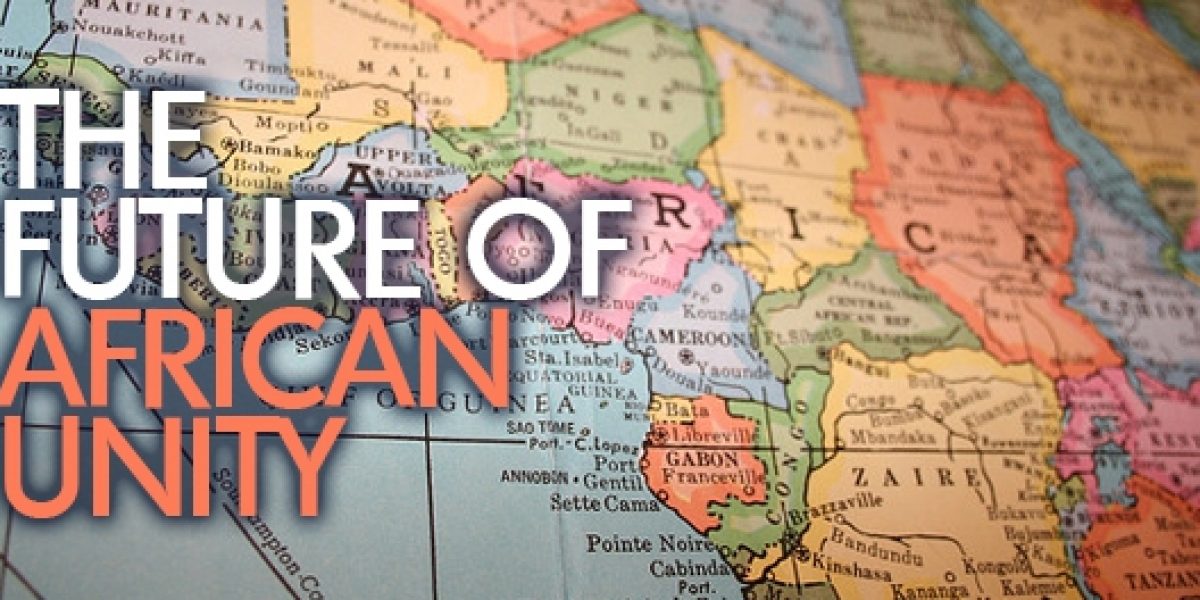Can Africa plausibly find common ground for a common future? Unity requires more than intra-African cooperation or opening borders – it needs a foundation of common values. ‘Africa’ must stand for something.
This has been recognised, implicitly and explicitly, by the African Union (AU) since its founding. In 2011, an AU Summit was dedicated to ‘Greater Unity and Integration through Shared Values’. It pledged to ‘promote and encourage democratic practices, good governance and the rule of law, protect human rights and fundamental freedoms, respect for the sanctity of human life and international humanitarian law, as part of efforts for the prevention of conflicts.’ Unity features prominently in the continent’s current 50-year developmental blueprint, Agenda 2063.
These are worthy objectives, aligned with the demands of African and international governance and human rights agreements. And the values they represent are far more in evidence in Africa today than they once were. Multi-party politics is ascendant, and, in contrast to the laissez faire approach of the erstwhile Organisation of African Unity, coups are forthrightly condemned. However, there is still no strong condemnation of leaders tampering with constitutions to circumvent term limits.
But it is increasingly recognised that democracy implies different things in different environments. Democracy should not be equated with ‘freedom’ – recent history has shown that electoral regimes can coexist with authoritarian governance, producing what has been termed ‘illiberal democracy’ or ‘competitive authoritarianism’. The standard of constitutional governance, the willingness to allow citizens to form pressure groups and of the media to report and comment are arguably better gauges of countries’ values than holding elections.
Freedom House puts this in perspective. Using data on political rights and civil liberties, its annual Freedom in the World Index grades countries as ‘free’, ‘partly free’ and ‘not free’.
Of the AU’s 54 states, 11 are rated free, 18 partly free, and 25 – or nearly half the total – not free. The AU encompasses states ranging from among the freest on earth to among the most repressive.
The Country Review Reports of the African Peer Review Mechanism (APRM) – the continent’s innovative governance review system – underline what this means for political life.
Click here to visit SAIIA’s APRM Toolkit, a comprehensive repository of APRM reports and other documents for civil society, academics, students, journalists and donors.
Thus, constitutional governance – separation of powers, the rule of law and so on – is respected in parts of the continent, but not in others. Mauritius can celebrate a long tradition, while post-apartheid South Africa has made a considerable contribution to international jurisprudence, particularly through the concept of ‘transformative constitutionalism’. In other countries, weak courts and legislatures, and executive dominance undermine robust constitutionalism. And in some countries, formal governance arrangements are not designed to limit powers. The APRM report on Rwanda, for example, says that ‘instead of separation of powers, what seems to have prevailed in the strictures of the Constitution is, in fact, fusion of powers.’
Perhaps more serious is the lack of continental consensus on freedom of association. The ability of citizens to combine to press their interests is a vital asset for democracies. Indeed, civil society organisations (CSOs) have played a major role in democratic transitions in various African countries, and have at times checked questionable government agendas – such as the successful campaigns against extending presidential tenures in Zambia in 2001 and Nigeria in 2006.
But the environment that enables activist groups to contest political matters in South Africa or Ghana does not exist in, say, Algeria or Ethiopia. Restrictive legislation in many countries imposes strict conditions on CSOs, effectively giving governments powers to veto their activities. In Ethiopia, measures such 2009 Charities and Societies Proclamation (CSP) have placed politically-inclined activism largely out of bounds.
That these contrasts in governance values are accommodated within the AU – its professed commitment to democracy, constitutionalism and human rights notwithstanding – raise serious questions about the prospects for continental unity. They also question the plausibility of Agenda 2063. It is difficult to imagine a functioning continental order when the orientations of its individual countries are so different.
These divergences also raise questions about the nature of Africa’s emerging democratic order. Thomas Carothers has argued that it is mistaken to see the contemporary blend of democracy and authoritarianism as a transitional phase. It may prove a durable form of governance, and one with an attraction for many governments on the continent. An observer of Ethiopian politics notes confidentially that around 20 African countries have expressed an interest in the CSP as a possible model. All of this advances the possibility that if a value consensus did emerge among the AU’s members, it might be based on the perceived need for security and state dominance over society.
This is a jarring prospect for Africans who envisage an Africa of greater openness and freedom. The implication of this is that Africa’s civil society and its activist community must recognise that campaigning for democracy and freedom cannot be confined exclusively within national boundaries. What happens elsewhere matters.
Until ‘Africa’ can decide what values it embodies, unity will be elusive. What those values are depends on the will of Africans, governors and citizens alike, to make them a reality.








